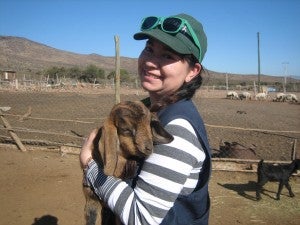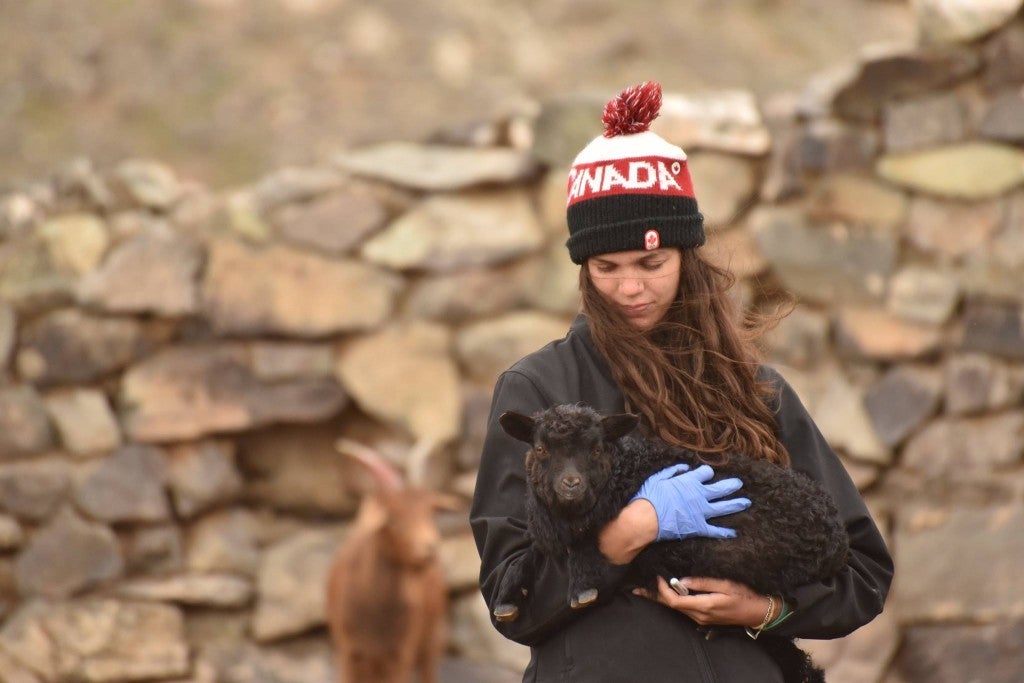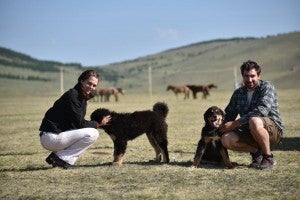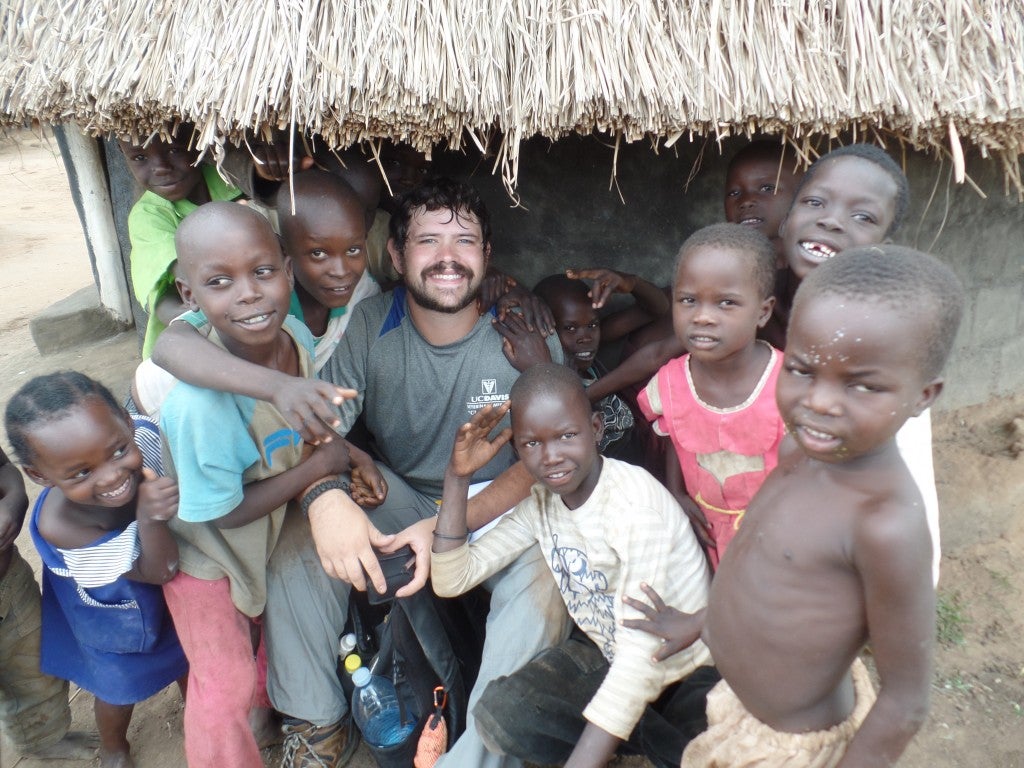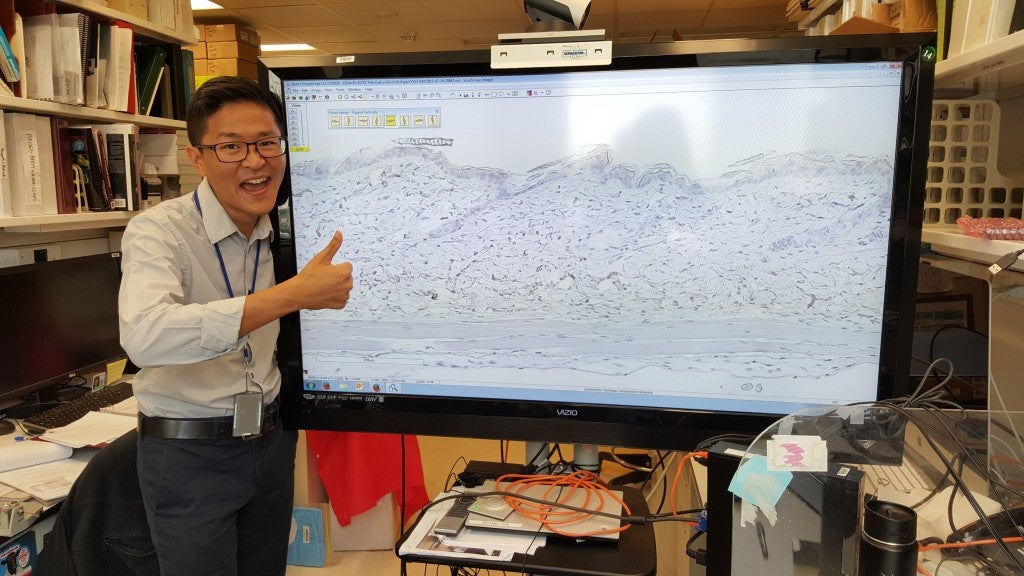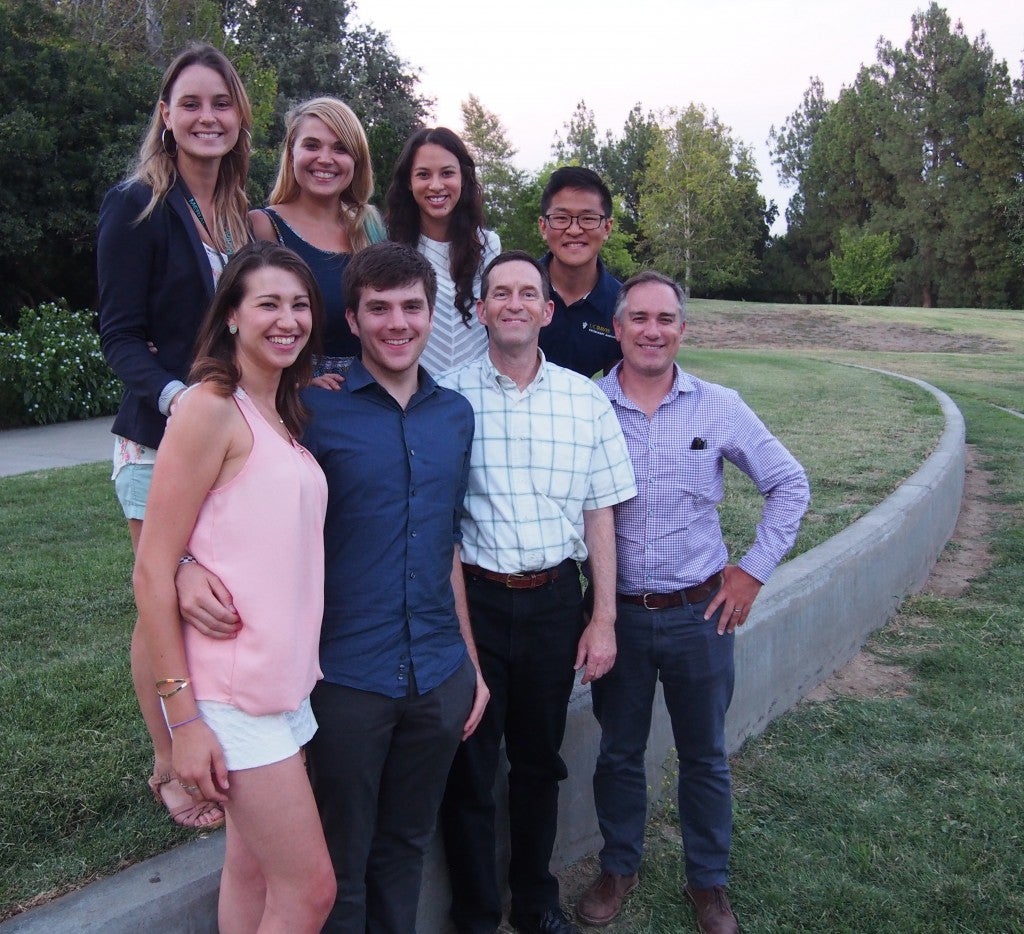Contributed by Devin von Stade, Class of 2017
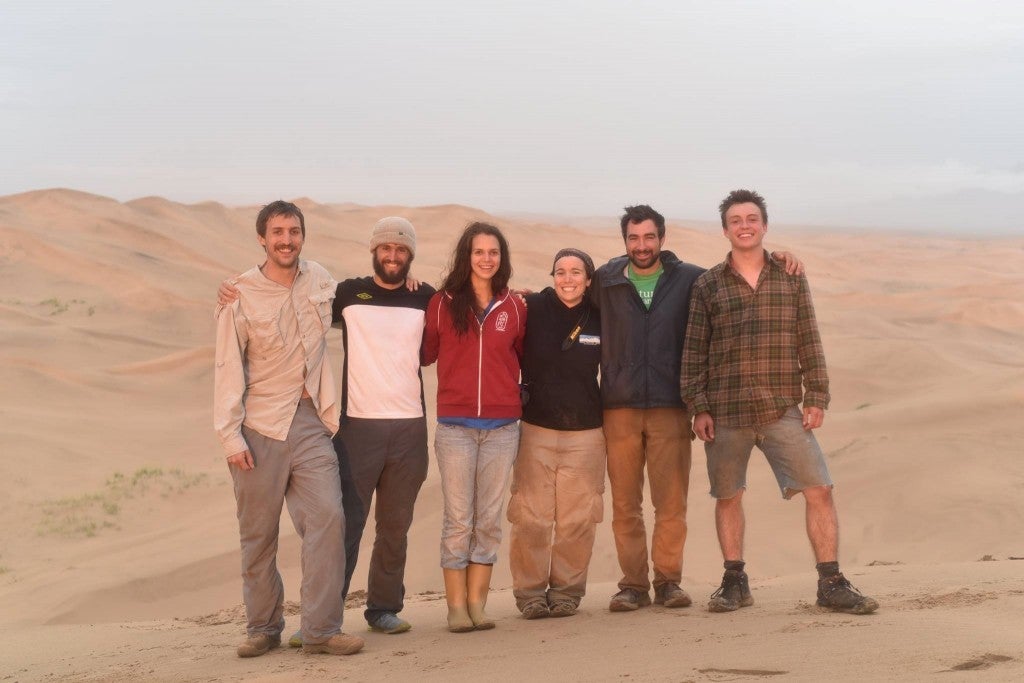
Members of the research team from left to right: Gar Waterman, Devin von Stade, Samantha Lawton, Emily Iacobucci, Douglas Lally and Devin Byrne. (Photo: Soyolbolod Serguleng)
This summer I realized a dream I had left on the back burner for over a decade: exploring Mongolia with one of my best friends. Inspired by old National Geographic articles and pieces of historical fiction and non-fiction alike, we had declared it the ultimate personal adventure. Having grown up (a little) since then, I briefly considered that my excitement at the prospect was perhaps misplaced, that now as a scientist my idea of adventure no longer applied, but I was so very wrong.
An adventure for me is an unusual experience where I face natural and cultural challenges, where I encounter new animals while camping under a foreign sky—an experience where preconceptions are broken down and questions have to be answered from scratch. This idea is as much entwined with the fantasy of youth as it is with a scientific approach. I went to Mongolia to test a field microscope as part of my summer STAR research project where I was assessing the capabilities of a low-cost digital microscope for veterinary tele-medical applications and preconceptions would only hold me back. Continue reading

